Gay men will no longer be whipped in public in Indonesia
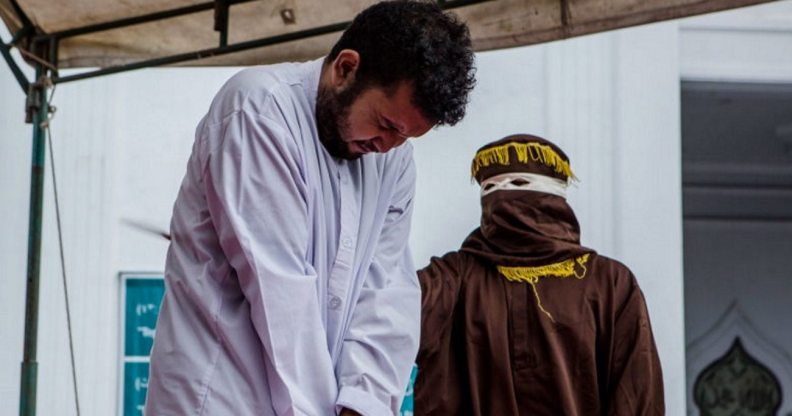
G
Gay sex in Indonesia will not be publicly punished with lashings anymore – but men will still receive the punishment behind closed doors.
Aceh, the only region of the secular country where Sharia law is in effect, will continue to conduct the barbaric practice, which saw two men caned 83 times last year for consensual sex.
Earlier this month, a gay man and transgender woman were arrested for ‘having gay sex,’ and face a similar punishment.
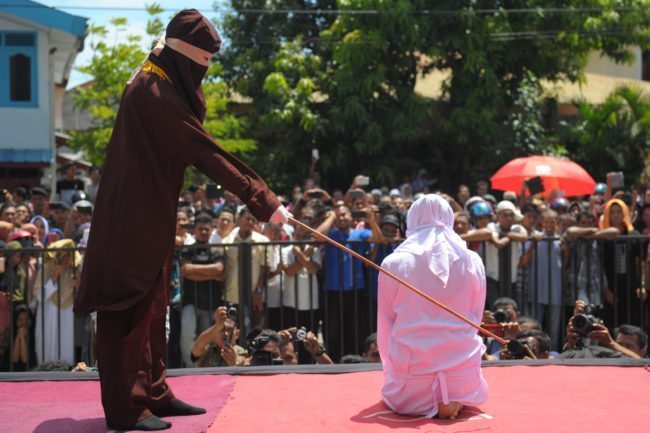
(Getty)
Two university students are also being detained before going on trial for having gay sex in Aceh.
The 21 and 24 year old were arrested on Thursday after vigilantes forced their way into a room where the men were allegedly having sex.
Marzuki, head of the Aceh Provincial Sharia Law Department, told local reporters that one of the men had allegedly confessed to the charges after residents handed over mobiles, condoms and a mattress as evidence.
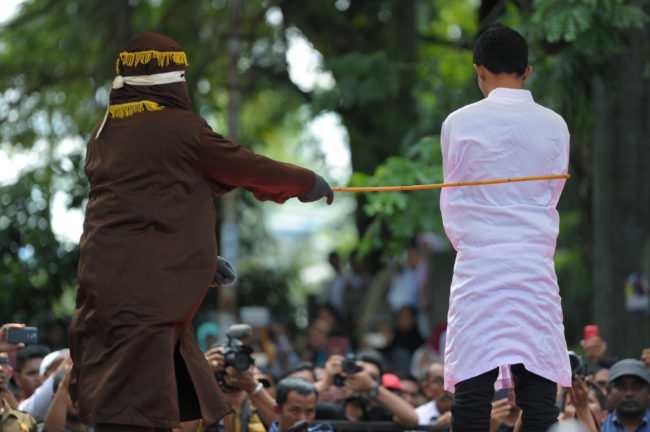
(Getty)
The province was able to institute Sharia law after the government made the concession as part of a 2005 autonomy deal.
The agreement was created to end a bloody decades-long conflict between Muslim separatists and the military in which thousands died.
The current law allows for up to 100 lashes for so-called morality offences.
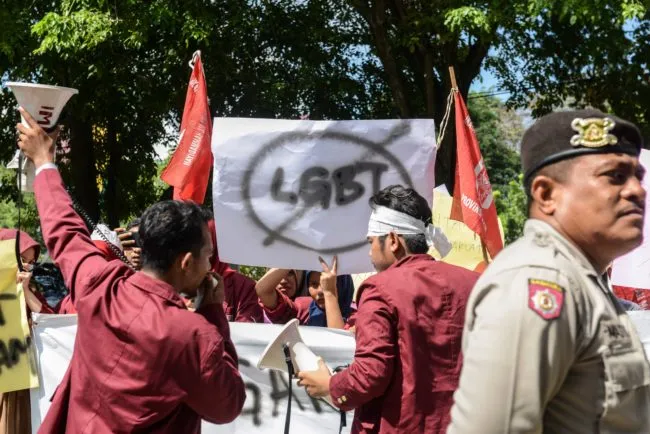
(Getty)
Journalists and adults will still be able to watch the canings, which will take place behind prison walls, according to AFP.
Andreas Harsono, Human Rights Watch’s Indonesia researcher, has said that the lashings mean “Aceh is leading the race to the bottom.”
And Aceh’s governor, Irwandi Yusuf, was clear in saying that the move had been taken to reduce criticism from foreign countries who object to inhumane punishments.
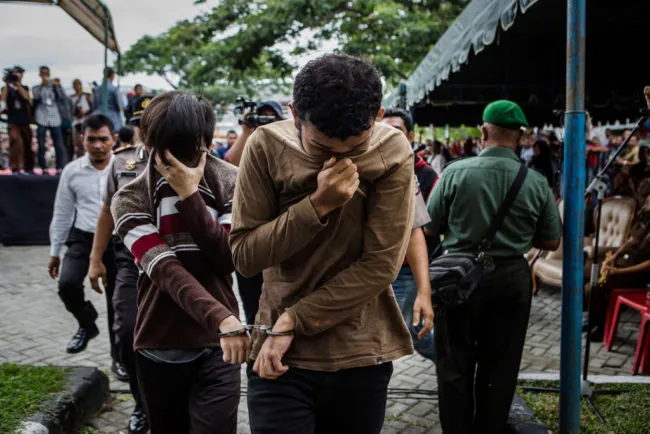
Gay men in Indonesia being led to be lashed 83 times (Getty)
However, he blamed any opposition to the canings on anti-Islam sentiment.
“This (law) is to muffle protest… to muffle Islamophobia,” said the governor. “We don’t want Islamophobia to interfere with (Indonesia’s) foreign affairs.”
As the new law was passed, a demonstration was held outside the region’s government building – against holding the lashings away from the public.
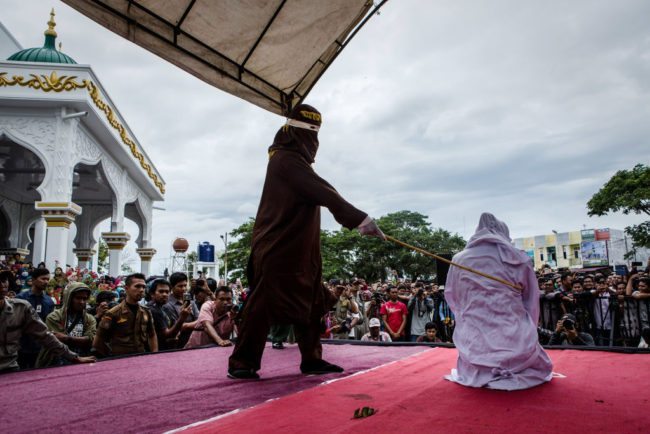
(Getty)
One demonstrator, Tuwanku Muhammad, said: “If caning is done in prison… we’re sure there will be more Sharia violations in Aceh. Even now, there are… violations.”
While homosexuality has never been illegal in Indonesia, attitudes towards LGBT people have become more extreme across the country in recent years despite a growing gay population.
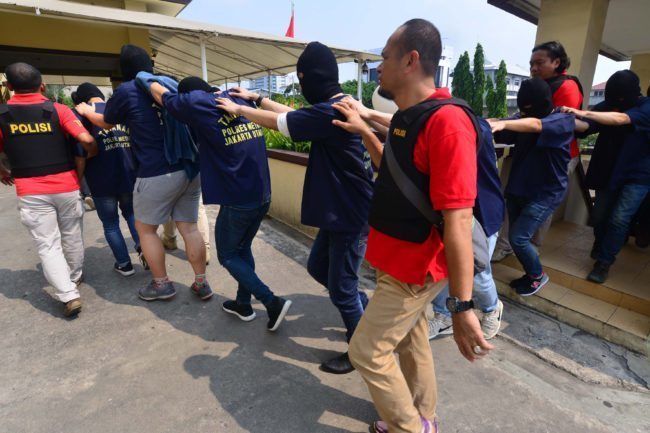
(Getty)
The Indonesian Psychiatrists Association classifies homosexuality, bisexuality and being transgender as illnesses.
There is also a growing movement in the country to ban gay sex.
A bill with the support of most of the country’s main political parties is making its way through the legislative process.
Amendments have been accepted by the House of Representatives, but the whole parliament must sign off on the bill before it makes its way to the president’s desk.
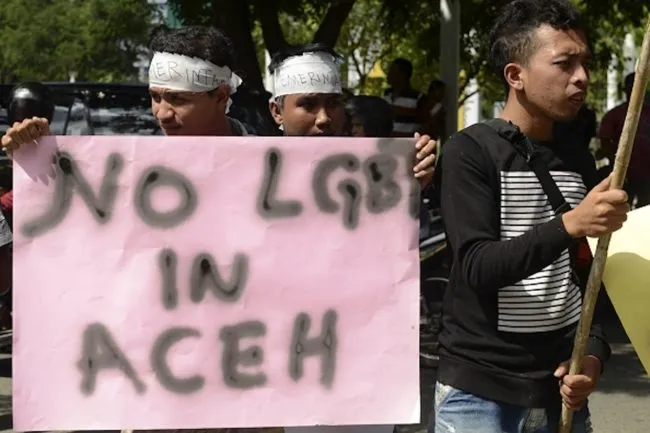
(Getty)
Harsono said that the new law “will create new discriminatory offences that do not exist in the current criminal code.
“It will slow down Indonesia’s efforts to develop their economy, society, knowledge [and] education … if law enforcement agencies are busy policing morality.
“It’s sounding like the Acehnese Sharia code,” he added.

